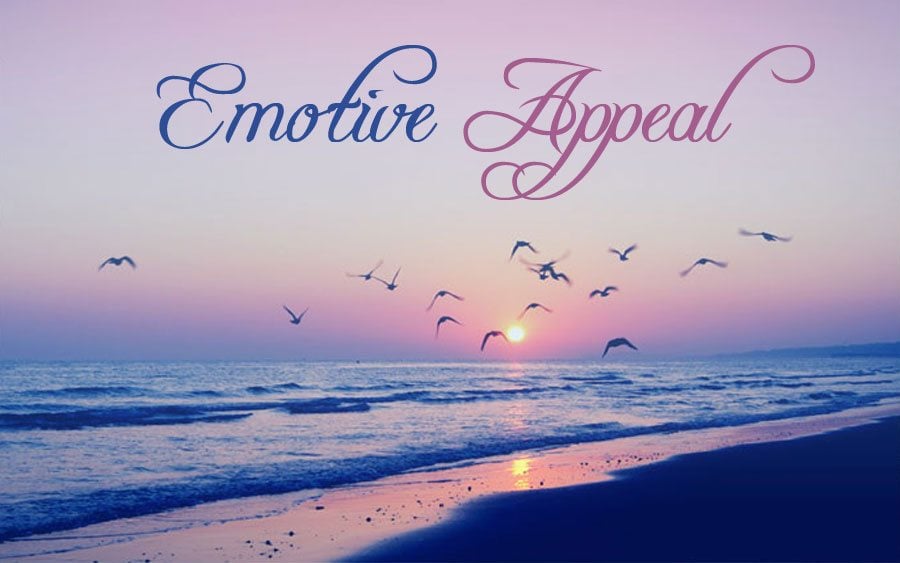If you have a favorite apparel store that you shop really often, have you ever wondered why do you like so much that particular store? Apart from the garb choices it has an offer that suits your personal sense of style, there is another reason why you keep going back again and again. You’ve developed an emotional connection and forged a positive association with this very store.
This is the reason why you keep using the products of a certain brand, regularly eat out at a particular restaurant, and keep returning to the same websites. Building emotions with a website has a direct impact on the visitors' take away from the site and how they view your brand through the prism of your site. Evoking the right kind of feelings with your website's visitors draws the response you are looking for and makes the desired impact on visitor psyche. This is important because informed decision-making is a mix of the emotional and the rational, more of the former than the latter in some cases.
In this article you will find out about emotions that make customers buy. It gives you an idea about importance of emotions in the process of selling, which essentially is what all websites do.
Consider this screenshot:
Image source: KFC
You are looking at this image, and there is an immediate emotional connection. It evokes feelings of envy, empathy (for the guy looking at the Go Cup with such desire in his eyes), and all it evokes is a feelings of hunger. It's going to make you order a KFC meal pronto.
This is what bringing emotion to web design is all about.
So, how do you go about doing it? If you've watched The Prestige (incidentally one of my favorite movies of all times), Cutter, the character played by Michael Caine, says every great magic trick has three parts, “The Pledge,” “The Turn,” and “The Prestige.” Likewise, every successful website with emotional heft has three parts:
- Immediate Emotional Impact
- Trust
- Conversion
Let's take them one at a time…
The Ability to Create an Immediate Emotional Connection
Image source: Nike
Nike’s website uses images that convey the right emotions, usually passion for a particular activity. When looking at any given image and will easily understand what this website wants to convey. In this particular case, if you have a runner inside, you'll want to run that race Nike wants you to.
Trust in Me, Just in Me
The python’s song from Jungle Book is super-popular, and whoever's seen this Walt Disney classic cannot forget the image of Kaa the python hypnotizing Mowgli and placing him in a soothing trance. This is what the emotional impact actually preps you up for, it creates enough of an emotional impactto thus inspiring trust. This trust is the second stage of using emotions in web design. The imagery that creates an immediate emotional impact needs to be built upon.
Image source: World Wildlife Fund
The WWF website is a great example of one built on the emotional impact to win the trust of website visitors is all about. The image above is its pièce de résistance – the cute looking polar bears (seriously, their faces look Endangered with a capital E) – and this is where all the action happens. It's telling visitors that WWF is doing some good work and you can trust them.
Taking these Emotions to a Logical Conclusion
This is the part where everything actually comes together. How do you convert all that emotion into a decision? Yes the visuals have evoked a certain kind of emotional response, but how do you use this response to create empathy for the website's purpose? A website visitor will only perform the tasks you want them to if they are outcomes of rational thinking.
Image source: Digital Public Library of America
One website that compels visitors to take such actions is the Digital Public Library of America.The visual imagery draws you in, makes you feel a little nostalgic, a trifle unaware about the world in general, and extremely curious. The design next inspires trust and you make a decision – you seriously consider using the site. Every single emotional aspect of the website works together, persuading visitors to take an action, which in this case is search for information.
Emotions are the Sales Pitch of Your Site
Think of emotions as a means of pitching your site to your target audience. If a website is selling products, it needs to evoke a burning desire to own them; if it's a sports website it needs to evoke feelings like passion and excitement; you get the drift. This stuff, for want of a better phrase, is pure emotional blackmail, but isn't exactly what all successful brands do – use emotions to turn us into lifelong customers, brand loyalists, advocates and influencers? So why should a website be any different? It's your brand on the web, so it needs to put emotions to work as well!
